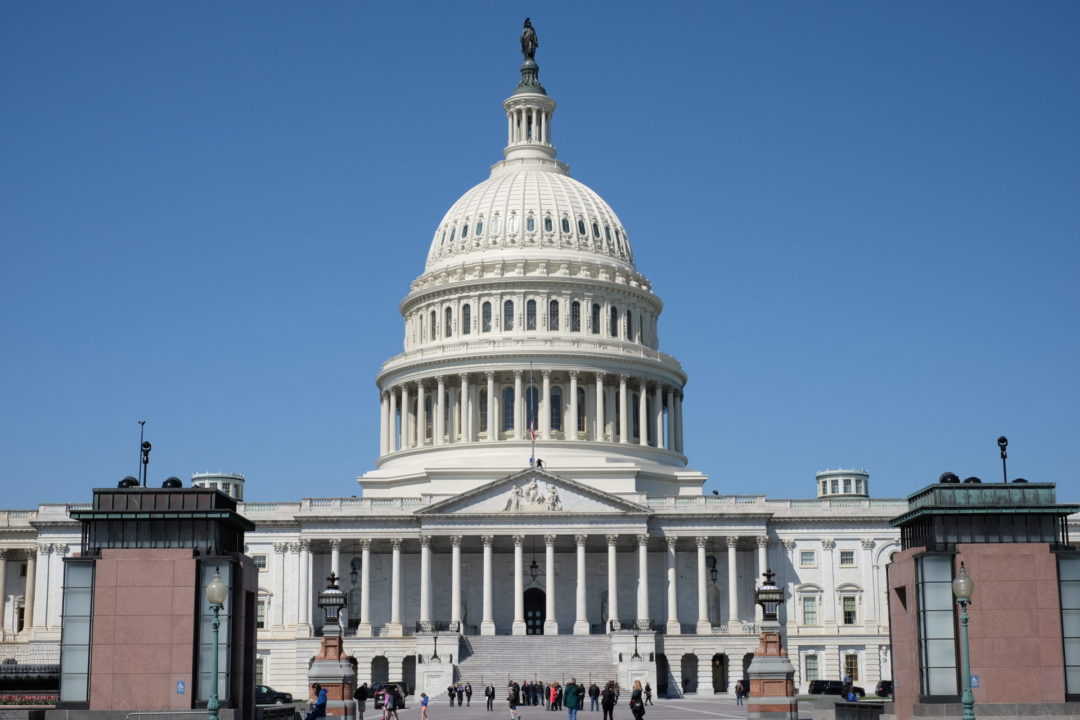
2018 Natural Products Day: Keeping Up Appearances at the Capitol

The “asks” this year were similar to last year’s, with a few new additions to the agenda. Of course, the actual discussion during these meetings differs depending on the people in one’s group and the part of the industry they represent. This allows the group to speak with some authority on certain topics (nobody is an expert on all the topics) and keeps these short meetings focused.
Some of the familiar topics carried over from last year include: adding dietary supplements into the Women, Infants and Children (WIC) Supplemental Food Program and expanding dietary supplement coverage to allow reimbursement for supplements from Health Savings Accounts and Flexible Spending Accounts.
These are part of a push by the industry to improve access to dietary supplements, which can be an expensive prospect for many. This is particularly important for at-risk low-income communities (those eligible for WIC), especially expecting mothers who would benefit immensely from the supplementation of folic acid. For example, statistics from the Centers for Disease Control (CDC) state that Latino babies are at a higher risk of brain and spine birth defects and a new study of 45,300 children found that use by mothers of folic acid and/or multivitamins was associated with a lower likelihood of autism spectrum disorders compared to no supplementation.
WIC currently allows for the purchase of fortified foods, but NPA points out that micro-efficiency and efficacy data on micronutrients used to support WIC comes from studies involving dietary supplements and not necessarily fortified foods.
Another topic broached last year but given additional attention this year is personal care products reform legislation. Last year this concentrated on asking representatives and senators to co-sponsor the Personal Care and Safety Act, introduced by Sens. Diane Feinstein (D-CA) and Susan Collins (R-Maine), which was developed to provide clear mandates on Good Manufacturing Practices (GMPs), funding for associated facility inspections and to tie funding to enforcement of cosmetics, the legislation would amend the Federal Food, Drug and Cosmetics Act to require cosmetic companies to register their facilities with the U.S. Food and Drug Administration (FDA) and to submit cosmetic ingredient statements.
This year’s “ask” concentrates on the FDA Cosmetic Safety and Modernization Act (S. 2003) introduced by Sen. Orrin Hatch (R-UT). While both bills expand FDA’s oversight of cosmetics and personal care products, Hatch’s bill relies on Congressional appropriations to fund new work rather than user fees collected from industry by FDA and places the burden on FDA to show a cosmetic chemical is “not injurious” rather than putting the burden on the manufacturers like the Feinstein-Collins bill.
Because GMP guidance by FDA is not legally binding, industry seeks formal rulemaking that provides effective enforcement of GMPs in the cosmetic industry. A representative of BASF expressed frustration about the lack of regulation within the cosmetic and personal care space, especially that there is no definition of the term “natural.” She told legislative aides that the use of “natural” on personal care products is pervasive in the industry and the quality and definition of “natural” products in the space vary wildly, creating confusion among consumers and hostility between manufacturers who challenge each other's definition of “natural” in court.
A new and important topic on the agenda was protein content food labeling. The issue here is that to determine protein content, nitrogen content is measured and multiplied by 6.25, which wouldn’t necessarily be a problem if it were not the case that nitrogen-containing compounds not used in protein synthesis can be counted toward the calculation of protein content. This was of particular importance to Mark Glazier, founder and CEO of NutraBio because it means he has to compete against companies selling an inferior product that can still list the same protein content even though it does not contain the same level of protein. Not only that, but consumers are misled into thinking they can buy a quality product for less money.
Besides the “asks” provided by NPA, Chad Lewis, director of regulatory compliance at Universal Nutrition, also brought up the issue of trade — considering that the natural products industry, especially dietary supplement manufacturers, are consistently importing and exporting raw materials and finished products. With the Trump administration’s hard stance on trade and its recent tariffs, the trade environment is certainly tense, and he asked that representatives and senators monitor how the administration’s actions will affect the natural product industry and help reduce tension.
Some of the meetings were more productive than others. When meeting with legislative aides (who do a lot of work and help the congresspeople immensely), it's not always clear whether any of this will get to those we are trying to convince. Some members are already sympathetic to the cause of the industry, others are more resistant and others still simply may not care. There was one aide, however, who was very engaged, perused the material and asked questions demonstrating actual interest in the topics brought up.
So, at the very least, one person saw the importance of what we were talking about and that's all we can ask for.

The editorial team at WholeFoods Magazine has decades of experiences reporting on natural products industry news, trends, and more. This national, monthly business-to-business magazine has been published continuously for nearly 40 years (the magazine was founded in 1977, and has been owned by Wainer Finest Communications since 1984). It is the longest-tenured media outlet of its kind in the natural products industry. The editorial focus at WholeFoods Magazine is, and always has been, on informing and educating members of the natural products industry.
The Magazine
Information
About Us
NOTE: WholeFoods Magazine is a business-to-business publication. Information on this site should not be considered medical advice or a way to diagnose or treat any disease or illness. Always seek the advice of a medical professional before making lifestyle changes, including taking a dietary supplement. The opinions expressed by contributors and experts quoted in articles are not necessarily those of the publisher or editors of WholeFoods.







